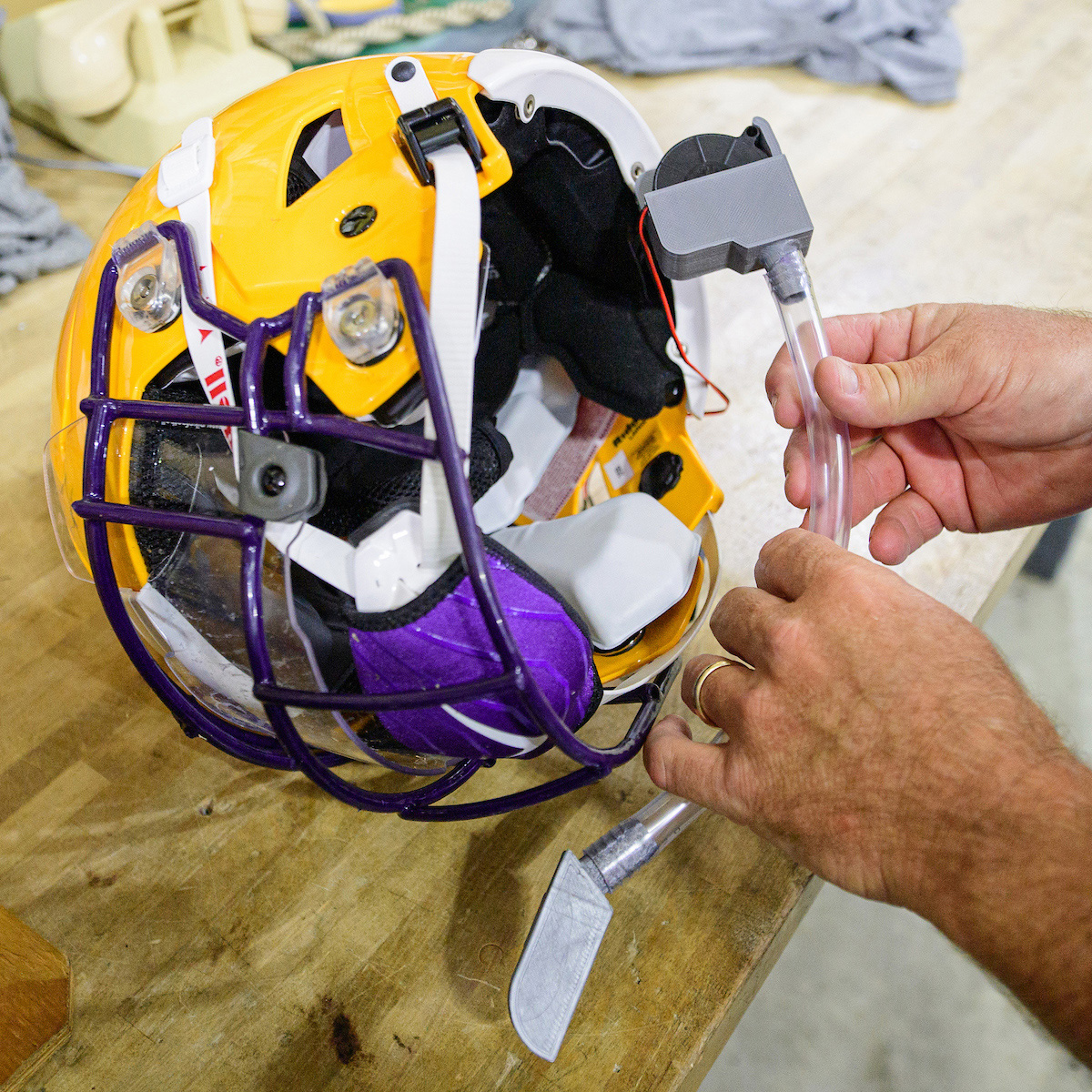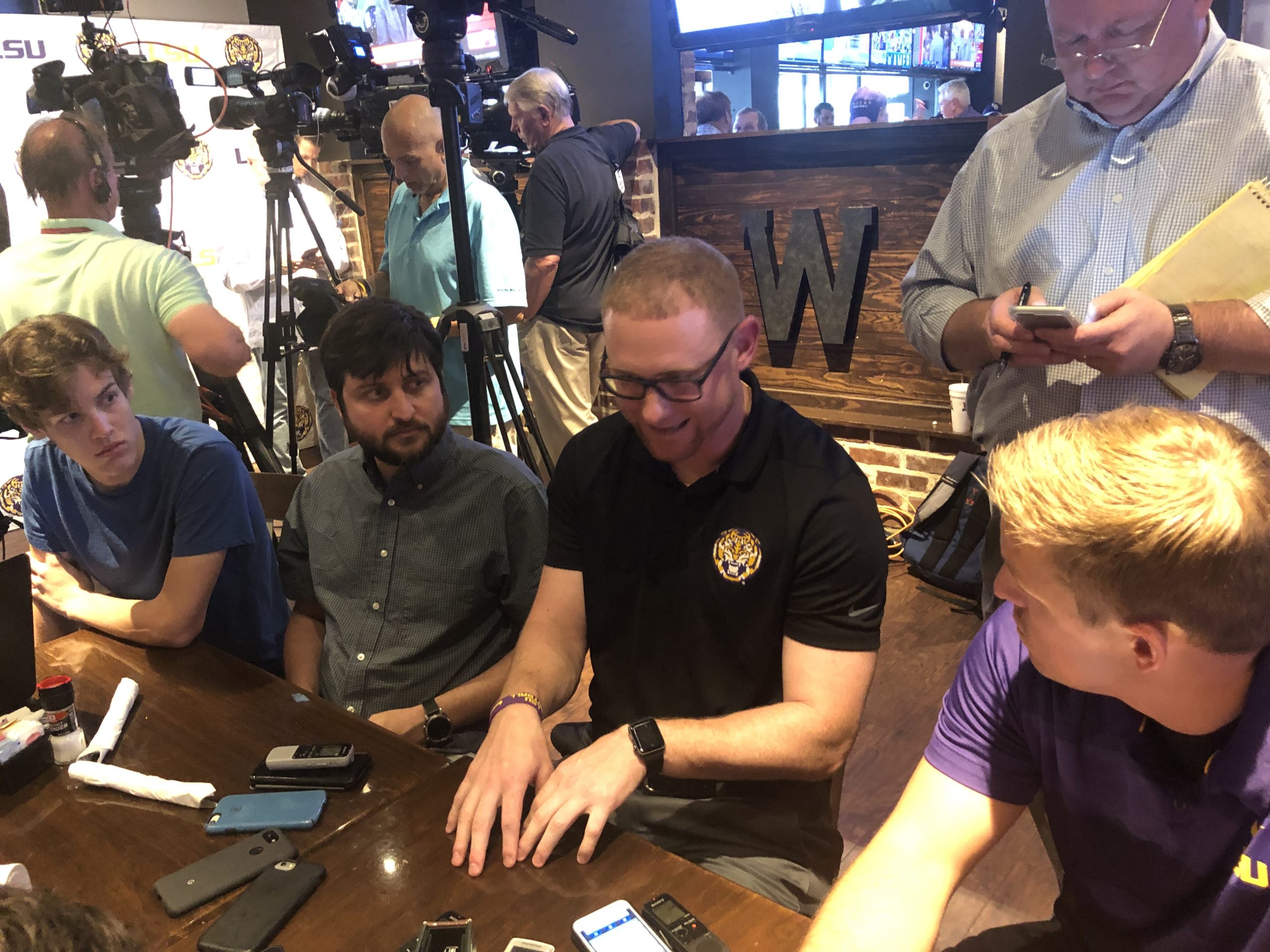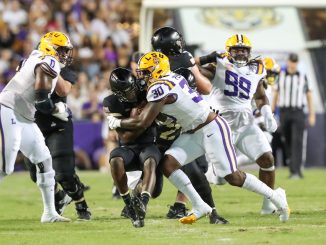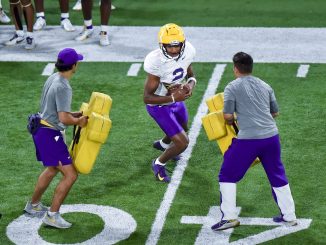
Ever hear the phrase “cooler heads will prevail?”
The LSU Office of Innovation & Technology Commercialization and Louisiana sports technology startup Tigeraire are making sure it happens first for the Tigers’ football team.
Those entities joined forces to develop new cooling technologies to make customizable air circulation devices for athletic helmets helping protect players from coronavirus.
LSU players are testing the devices that are driven by fans built into the helmet. Players stay cooler and more comfortable on the field while keeping their helmets and additional safety gear on longer.
When the protective COVID-19 visors made their debuts at the start of preseason camp, there were immediate complaints from LSU’s players about the heat retention caused by the visors (offensive tackle Austin Deculus said on social media “it’s like trying to breathe in a Ziploc bag”).
Trapped heat inside a helmet increases overall body temperature, leading to fatigue and potential heat stroke. Also, the retained heat fogs the visors.
So, what to do?
Make air-conditioned helmets, of course.
The new technology sucks air into the helmet through existing air vents near the back of the helmet with small battery-driven fans attached to a set of flexible tubing. The tubes can be customized and mounted to the inside of the helmet to direct air where needed, usually forward and downward over the face toward a visor or plastic face shield. N95 filter materials can be added at the intake for increased safety.
Used with the full-face plastic shield, the air circulation technology creates a positive pressure environment around the athlete’s face, making it more difficult for external contaminants to enter the helmet.
The airflow angle is designed to avoid drying out the eyes of the athlete by not blowing directly into them.
The portable power packs can last up to eight hours, so players could keep their helmets on for an entire game or practice.
“Players always talk about how nice it is when there’s a breeze outside, and this new helmet technology creates a similar sensation of coolness,” LSU Director of Athletic Training Jack Marucci said. “The benefit is even greater for players who wear protective eye shields because it eliminates the possibility of any fog developing inside that can obstruct the player’s vision.”
LSU has licensed the new tech to Tigeraire, which is also venturing into commercial production for various sports and even for safety workers.
“We are thrilled to be working with such an amazing university to implement our growing suite of air-enabled performance and protective gear,” Tigeraire founder and CEO Jack Karavich said about his company’s partnership with LSU. “Having the opportunity to develop this technology together with some of the most elite college football players and their expert staff has led us to valuable insights that will rapidly extend our reach into a broad set of helmet-based sports.”
The market size for American football helmets nears $150 million annually, with college football accounting for around $57 million.
“Player health and safety is a top priority at LSU,” football coach Ed Orgeron said. “Our staff makes sure our players have the best equipment and technology so we can have them on the field as safely as possible.”
The systems are on sale on the Tigeraire website.
There’s a youth and high school model available called Lil Breezy that sells for $95 and ships in November. It includes one custom blower assembly, a micro air register, clear flexible tubing and a rechargeable Lithium ion battery.
The college and pro model named The Cyclone has twice the power of Lil Breezy. It is only available for college and professional teams.




Be the first to comment